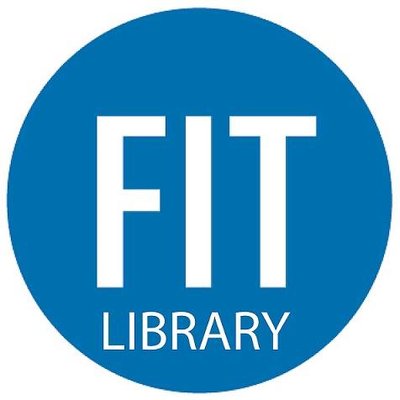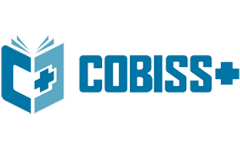Scale Participation of Parents and their Relationship on Schooling Students
DOI:
https://doi.org/10.61841/cf3tdz38Keywords:
Collaboration, Educational Process, Low Participation, Parents, School PerformanceAbstract
The collaboration and interest that parents provide in the educational process of their children is vital to achieving a satisfactory school performance. The objective of the project was to verify the relationship between low parental participation and the academic performance of the students. For the writing of the article, a theoretical review of the literature was made and to obtain precise data the survey was used as an instrument. The results show that parents do not collaborate regularly on their children's homework and school activities. Lack of time and parental interest affect more than their academic level in the school performance of students. Students not having control and supervision of parents spend little time to perform the tasks assigned. The assessment that students attribute to their school performance is similar to that provided by teachers.
Downloads
References
1. Amen, J. S. L., Tuarez, M. E. S., & Pisco, J. M. P. (2019). The presence of anemia of university leveling students from dysfunctional families. International Journal of Health Sciences, 3(1), 9-16. https://doi.org/10.29332/ijhs.v3n1.253
2. Assapari, M. M., Martha, I. N., Sutama, I. M., &Artini, L. P. (2019). Developing EFL learning materials for adult learners. International Journal of Linguistics, Literature and Culture, 5(3), 32-42. https://doi.org/10.21744/ijllc.v5n3.629
3. Basantes, M., &Erazo, M. (2017). The parental absence in the academic performance of children from 3rd to
7th of basic general education of the school of basic education "Republic of Brazil" in the city of Quito in the
2016-2017 school year (Undergraduate thesis). Central University of Ecuador, Quito, Ecuador
4. Chaparro, A., González, C. & Caso, J. (2016) Family and academic performance: configuration of student
profiles in secondary education Electronic magazine of educational research, 18(1), 53-68.
5. Chong, E. (2017). Factors that affect the academic performance of students of the Polytechnic University of the
Toluca Valley. Latin American Journal of Educational Studies (Mexico), XLVII (1), 91-108.
6. Delgado, D. G. L., Delgado, F. E. A., & Quiroz, P. M. Z. (2019). Permanent application of diagnostic
assessment on learning teaching process. International Journal of Linguistics, Literature and Culture, 5(4), 34-
45. https://doi.org/10.21744/ijllc.v5n4.699
7. Enriquez, M., Insuasty, M. &Sarasty, M. (2018). School p For families: A socialization scenario between family
and school. Katharis Magazine, 25 (1), 94-107.
8. Espitia, R & Montes, M. (2009). Influence of the family in the educational process of minors in the Costa Azul
neighborhood of Sincelejo (Colombia). Research and development, 17(1), 84-105.
9. Estevez, A. G., Roche, J. R. F., Espinosa, A. H. R., & Rodríguez, D. L. (2018). Social skills training program to
prevent alcohol consumption in university students. International Journal of Health Sciences, 2(3), 43-54.
https://doi.org/10.29332/ijhs.v2n3.216
10. Ferreiro, F., Ríos, D. & Álvarez, D. (2016). Influence of the family environment on academic performance in Galicia (Spain). Ibero-American Journal of Education, 70(1), 47-62. doi: 10.35362 / rie70172
11. Ginaya, G., Kanca, I. N., & Sri Astuti, N. N. (2020). Designing problem-based learning (PBL) model for tourism vocational education in 4.o industry. International Journal of Linguistics, Literature and Culture, 6(1), 14-23. https://doi.org/10.21744/ijllc.v6n1.808
12. Gutierrez, R. B. O., & Moreira, L. M. Z. (2018). The profile of executive secretaries and their relationship with labor demands. International Journal of Social Sciences and Humanities, 2(1), 75-83. https://doi.org/10.29332/ijssh.v2n1.84
13. Izar, J., Ynzunza, C. & López, H. (2011). Factors that affect the academic performance of senior students in Rioverde, San Luis Potosí, Mexico. CPU-e, Journal of Educational Research, 12, 1-19
14. July, V., Mánuel, M. & Navarro, L. (2012). Educational Strategy for the participation of parents in school commitments. Scenarios, 10(1), 119-127.
15. Lastre, K., López, L. &Alcázar, C. (2018). Relationship between family support and academic performance in Colombian primary school students. Psychogent, 21(39), 102-115. doi: 10.17081 / psycho. 21.39.2825
16. Liu, X. (2018). International communication of intangible cultural heritage in central plains: a case study of Chinese Wushu. International Journal of Social Sciences and Humanities, 2(3), 196-204. https://doi.org/10.29332/ijssh.v2n3.238
17. López, P., Barreto, A., Mendoza, E. & del Salto Bello, M. (2015). Low academic performance in students and family dysfunctionality. MEDISAN, 19(9), 1163-1166.
18. Maestre, A. (2009). Family and school the pillars of education. Innovation and educational experiences magazine, 1(14), 1-11.
19. Meeting of Autonomous School Councils and of the State XXIII (2015). Relations between family and school.
20. Menaka, G., & Sankar, G. (2019). The language learning assessment using technology for the second language learners. International Journal of Linguistics, Literature and Culture, 5(4), 1-6. https://doi.org/10.21744/ijllc.v5n4.674
21. Ordoñez, W., & Jami, E. (2017). The absence of parents in the learning process in the subject of chemistry of the students of the second BGU of the educational unit Great Britain, period 2016-2017. (Undergraduate thesis). Central University of Ecuador, Quito, Ecuador.
22. Reina, A. L. V. (2019). The brain and learning on initial students. International Journal of Health Sciences, 3(2), 38-43. https://doi.org/10.29332/ijhs.v3n2.329
23. Rodriguez, J. A. P., Perez, H. M. D., &Sabates, H. R. R. (2020). Psychological actions to increase tolerance to frustration in pitchers: category 15-16 years. International Journal of Health Sciences, 4(1), 1-7. https://doi.org/10.29332/ijhs.v4n1.377
24. Sánchez, A., Reyes, F. &Villarroel, V. (2016). Participation and expectation of parents about the education of their children in a public school. Pedagogical studies, 42(3), 347-367.
25. Serrano, BF, & Rodríguez, M. P (2016). Functionality of the family and its impact on academic performance in adolescents. Didasc @ lia: Didactics and Education, 7(1), 235-256.
26. Suryasa, I. W., Prayoga, I. G. P. A., &Werdistira, I. W. A. (2017). An analysis of students motivation toward English learning as second language among students in Pritchard English academy (PEACE). International Journal of Social Sciences and Humanities, 1(2), 43-50. https://doi.org/10.29332/ijssh.v1n2.36
27. Suryasa, W. (2019). Historical Religion Dynamics: Phenomenon in Bali Island. Journal of Advanced Research in Dynamical and Control Systems, 11(6), 1679-1685.
28. Valdés, Á., &Urías, M. (2011). Beliefs of fathers and mothers about participation in the education of their children. Educational profiles, 33(134), 99-114.
29. Vera, A. B. G., Vera, M. K. G., Garcia, A. M. R., & Miranda, M. J. V. (2019). Application of self-evaluation and co-evaluation on learning processes. International Journal of Linguistics, Literature and Culture, 5(5), 7-14. https://doi.org/10.21744/ijllc.v5n5.727
30. Villalobos, J., Flórez, G. &Londoño, D. (2017). The school and the family in relation to the scope of academic achievement. The experience of the Antonio José de Sucre Educational Institution of Itagüí (Antioquia) 2015. Aletheia Magazine, 9(1), 58-75.
31. Wirawan, I. G. B. (2018). Surya Namaskara benefits for physical health. International Journal of Social Sciences and Humanities, 2(1), 43-55. https://doi.org/10.29332/ijssh.v2n1.78
32. Yoga, I. M. S., Korry, N. P. D. P., &Yulianti, N. M. D. R. (2019). Information technology adoption on digital marketing communication channel. International Journal of Social Sciences and Humanities, 3(2), 95-104. https://doi.org/10.29332/ijssh.v3n2.297
Downloads
Published
Issue
Section
License
Copyright (c) 2020 AUTHOR

This work is licensed under a Creative Commons Attribution 4.0 International License.
You are free to:
- Share — copy and redistribute the material in any medium or format for any purpose, even commercially.
- Adapt — remix, transform, and build upon the material for any purpose, even commercially.
- The licensor cannot revoke these freedoms as long as you follow the license terms.
Under the following terms:
- Attribution — You must give appropriate credit , provide a link to the license, and indicate if changes were made . You may do so in any reasonable manner, but not in any way that suggests the licensor endorses you or your use.
- No additional restrictions — You may not apply legal terms or technological measures that legally restrict others from doing anything the license permits.
Notices:
You do not have to comply with the license for elements of the material in the public domain or where your use is permitted by an applicable exception or limitation .
No warranties are given. The license may not give you all of the permissions necessary for your intended use. For example, other rights such as publicity, privacy, or moral rights may limit how you use the material.
















